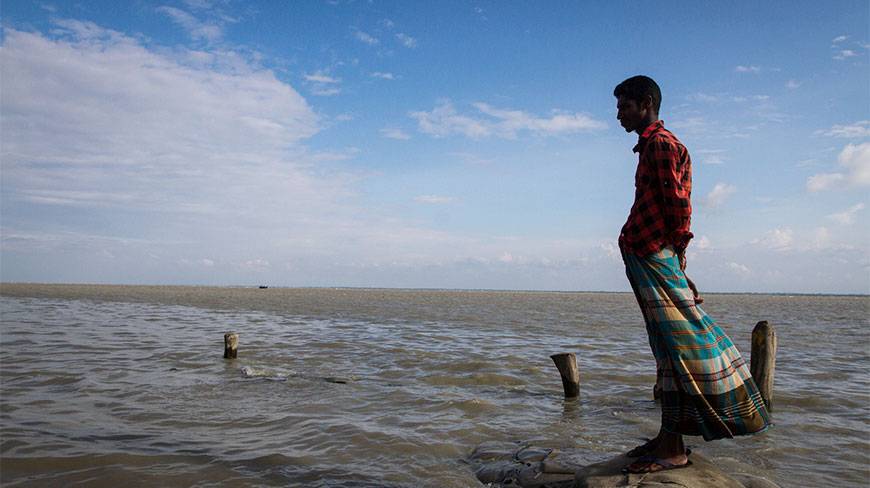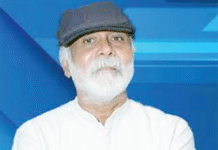Yesterday afternoon, the Bangladesh Internal Water Transport Authority (BIWTA) suspended the operation of launches and sea-boats in the Mawa-Kawrakandi route, saying the weather was not good.
Since Monday – the day Pinak 6 capsized in the Padma River – the BIWTA officials have not been allowing any launch or sea-boat to carry more than their capacities.
Most launches that operate on the route are allowed to carry up to 85 passengers, and every time a vessel reaches that limit, the officials have not been letting anymore people get on board.
Moreover, officials, along with policemen, are not letting any launch or sea-boat without life jackets and sufficient life-saving equipment to operate in the route.
There is no reason to think that these are something that needed to be done because of the major accident that took place on August 4, when the launch Pinak 6 that has a capacity of carrying 85 people, capsized in the rough Padma with nearly 300 on board.
It neither reportedly had the fitness nor was big enough to be allowed to ply on a rough river in bad weather. It also did not have enough life-saving arrangements. But despite all these, it was allowed to carry passengers and the result was one of the deadliest river-route disasters in the country’s history.
According to sources in the Bangladesh Inland Waterways’ Association, a total of 87 launches are registered to operate in the Mawa-Kawrakandi route that connects the people of 21 southern and southwestern districts with the rest of the country.
Most of them are over 30-40 years old and not fit enough to operate; but instead they operate all right and often ignore warning signals.
There are allegations that a section of BIWTA officials, in association with some policemen, allow all these to happen in exchange of bribes.
Shahin, owner of Akther Boat Company which has 35 sea-boats in the route, told the Dhaka Tribune that the sincerity that the officials had been showing since the capsize was nothing but an “eyewash; everything will go back to the usual very soon.”
He said: “We operate sea-boats at night and despite bad weather even there is warning signal number five; but no one stops us… Yes, police come to us when our launches run in bad weather. But we sometimes give them Tk150 and sometimes Tk50, and they happily go away without doing anything.”
The BIWTA officials are no different. “They come to the terminal to stop launches that carry passengers in excess of their capacities. But when Tk500 bills go into their pockets, they have no problem with the excess passengers,” Shahin said.
“After the accident, we bought 96 life jackets for our 35 boats at Tk900 each. But we will not need them anymore once the journalists go away,” he said.
Sources, understandably seeking anonymity, said some influential men affiliated with the ruling Awami League are involved with the evil bribery and extortion racket.
Mohiuddin, BIWTA port officer at Mawa, told the Dhaka Tribune: “It is not true that we do not stop launches from operating in adverse weather and with excess passengers. We always try to do that but the launch owners do obey us.”
As was expected, he denied allegations of bribery saying it was completely “baseless.”
The distance from Mawa to Kawrakandi is 5km. Given that the government-fixed fare for the route is Tk1.7/km, a passenger should only pay Tk9.
But, nobody will be able to cross the river unless they pay triple of that rate which is around Tk30. The sea-boats charge passengers as much as Tk150 for crossing the river.
What makes crossing the river more dangerous for passengers is that the sea-boats are often piloted by untrained drivers; when they operate in the dark of night – which of course is completely prohibited – the risk of accidents are even higher, sources say.
Abul Bashar, director of port and traffic of BIWTA, told the Dhaka Tribune: “There are only 87 registered launches in the route which can carry only 10,500 passengers per day. But generally, they carry at least 30,000 passengers every day. The number triples and quadruples during festivals.”
He explained: “As a result, it is basically impossible to control the excess passengers and the irregularities. Things get hard for us because we do not have the capacity to tell passengers to not cross the river on this route.”
Khalilur Rahman, chairman of the Mawa unit of Bangladesh Inland Water Ways Association, basted the officials saying: “It is true that we take some extra passengers to cope up with the pressure; but what do the BIWTA officials do throughout the year. When an accident happens and journalists pour in, they take some steps and do not allow excess passengers.”
He also said: “Everything will go back to normal once everything settles down… The owners operate unfit launches because the authority gives them the permission. So, owners cannot be held guilty. Ask the authority concerned.”
The Dhaka Tribune has talked to the Department of Shipping, the BIWTA and police about all these allegations. None of them were ready to take the responsibility.
Zakiur Rahman Bhuyan, director general of the Department of Shipping, said their duty was to only provide fitness certificates to launches. “It is the traffic inspectors and port officials’ duty to check whether a launch is maintaining order. BIWTA mainly coordinates this and we have almost nothing to do in this regard.
“Despite that, we conducted mobile court drives to check such irregularities; but because of labor shortage, it has always been a difficult task,” Zakiur said.
However, police said checking whether a launch was carrying excess passengers was not their responsibility. “Police can only give security to passengers,” said Jakir Hossain Mojumder, acting police super of Munshiganj.
He also denied allegations about bribery. “River officials look after the capacity of launches. So why should police take bribes?”
Source: Dhaka Tribune










